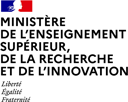WATER : A WORLDWIDE CHALLENGE FOR HORTICULTURE !




Mehdi Ben Mimoun, Tunisia ; Tarik Hartani, Algeria ; Diego Intrigliolo, Spain ; Manuela Zude-Sasse (ATB, Germany ; Alessio Scalisi, Australia ; Mininni Alba, Italy ; Hernandez-Santana Virginia, Spain ; Gölgen Bahar Öztekin, Turkey ; Julio Berbel, Spain ; Caroline Lejars, France; Jana Zinkernagel, Germany ; Brenth Clothier, New Zealand ; Alon Ben Gal, Israel ; Yishai Netzer, Israel ; Esmaeil Fallahi, USA ; Samuel Ortega-Farias, Chile ; Erik Mungatana, South Africa
Water resources are becoming scarce in quantity and quality in many parts of the world, while irrigation requirements are rising due to increased water use. This represents serious challenges for the whole horticultural sector, that need to be addressed for the future of the horticultural crop production. To this end, there is a lot of effort currently going on to investigate plant responses to water limitations and to provide the horticultural sector with adaptative strategies to improve water use efficiency and reduce emissions to the environment, while coping with water scarcity, low water quality and climate change.
This symposium will take stock of the high number of existing initiatives from a wide range of actors along the horticultural chain, to favor a holistic approach for improving water use in horticulture while sharing experience between temperate and tropical environments. Experts on the various aspects of crop water relations and water management at farm and river-basin level are invited to join this symposium to share their latest results and innovative strategies to face the decreasing availability of water in terms of quantity and quality. Results and exchanges from this symposium will have the ambition to contribute to setting up a research agenda for providing the horticultural chain and the society as a whole with effective tools and approaches to cope with climate change and water scarcity.
The following topics will be developed during the symposium :
• Horticultural systems and irrigation strategies to enhance water management at river basin level
• Adaptation strategies to low water availability and quality
• Innovative irrigation methods and equipment to improve water use efficiency and the circularity of water
• New Technologies for sensing Crop Water Status and precise irrigation scheduling.
• Assessing and modelling crop water requirements in response to climate change
• Combining clean (non-fossil) energy and efficient water use in horticultural crops
• Water savings and sanitary aspects in post-harvest handling and packaging.
• Water quality and recycling for irrigation: benefits and risks for health and environment.
• Water footprint assessments and water use efficiency certifications
• Competitiveness of horticulture regarding the alternative uses of water
• Socio-economic dimensions in improving water management
If you need help for your abstract please contact :
HOW TO PREPARE ABSTRACTS AND PAPERS SUBMIT YOUR ABSTRACTS







